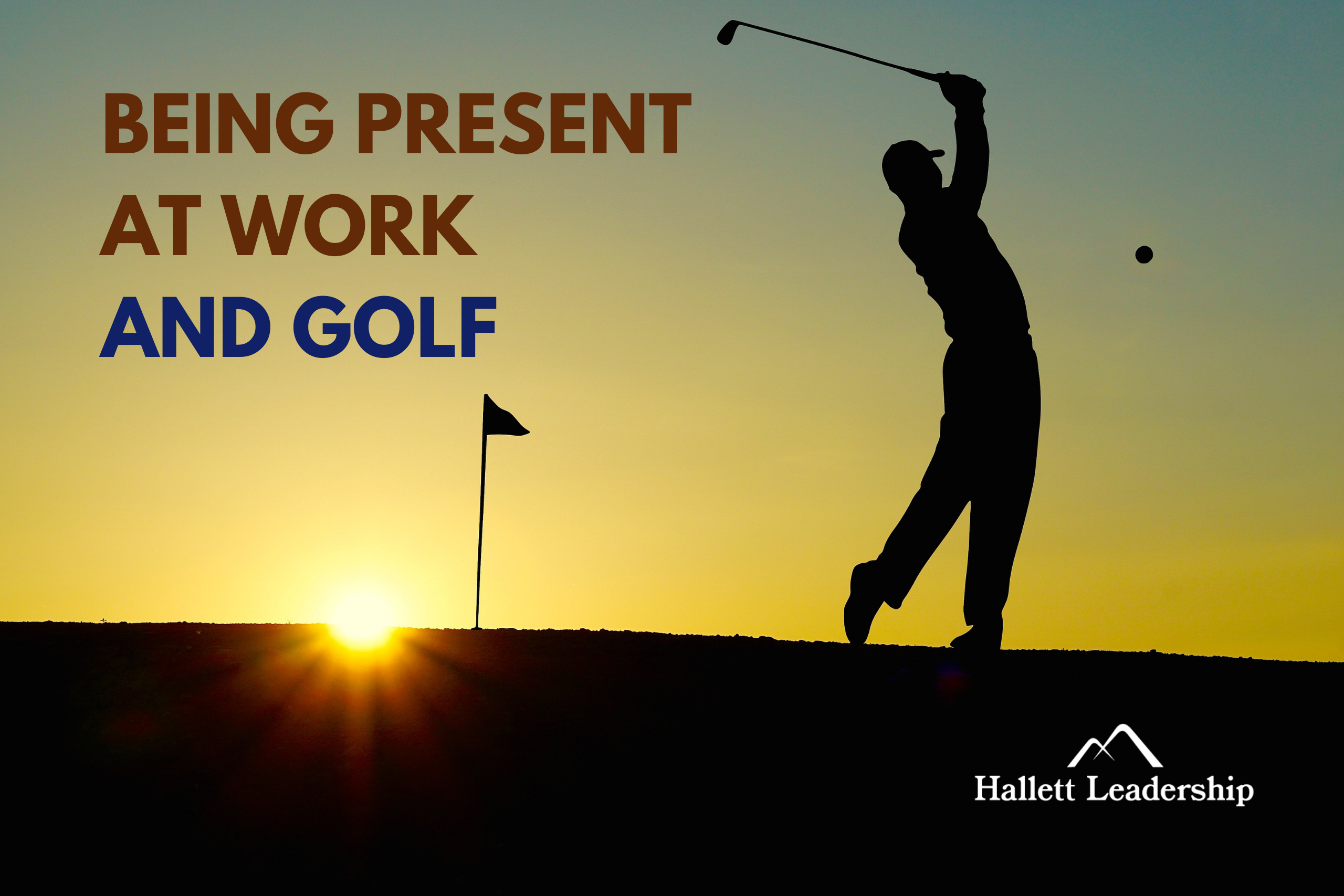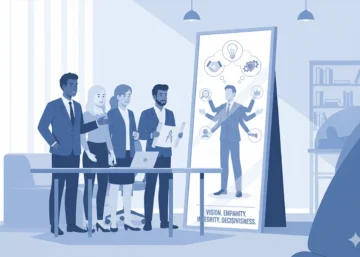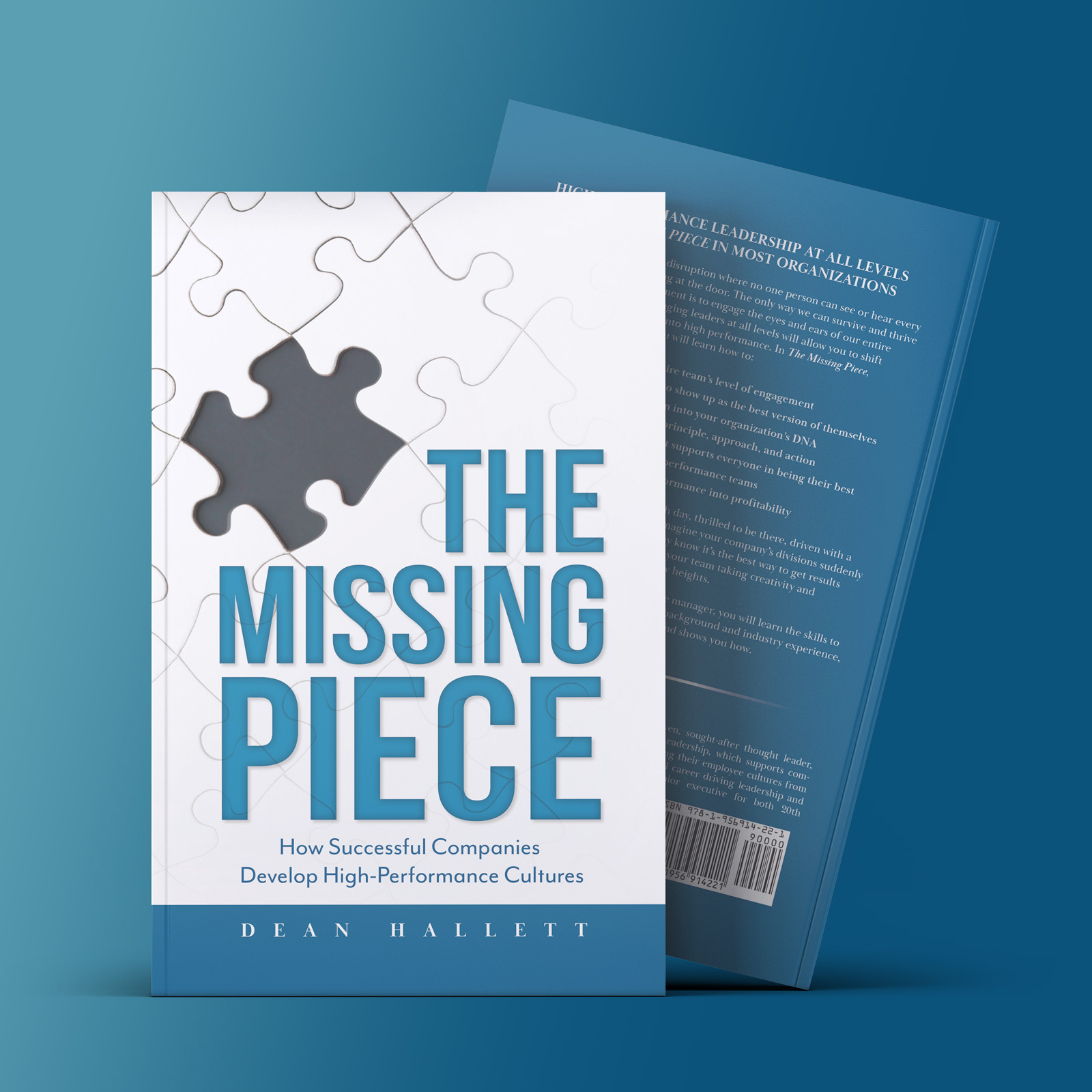Many of the most powerful things in our lives and careers are difficult to express in writing, because in words they can, at first glance, seem self-evident or even banal. Statements like “just follow your heart,” come to mind. Or, “there is nothing more important than family.”
Or even the sentence: “be in the present moment.”
Nonetheless, in this article we are going to advance directly into the minefield of stereotypes and slogans, and from it rescue what we believe to be one of the most important keys to success in life and career:
Being present. Specifically, being present at work.
Why? Because in our careers, it turns out that being present at work is where genuine relationships, creative collaboration, and innovation take place.
Now, let’s head over to the golf course as a way of grounding this discussion.
Focusing On The Shots, Not The Score
I can’t tell you how many times in golf, I’ve been playing a great game, and then blow up my score on the last three holes. Worrying about maintaining my score would bring me out of the present moment, and my performance would drop off precipitously.
Until one Saturday morning on the course, when I made a tiny breakthrough that made all the difference.
I restored my focus to the present moment. Twice.
That morning, I was on an uncommon streak, and headed toward my best score of all time. On the first nine holes, I went two under-par, for a score of 33.
Then on the back nine, I went bogey bogey bogey – or three holes where I hit one over par.
It was the old pattern again – excited about my performance on the front nine, my brain was worrying about messing it all up, and this worry was interfering with my engagement. I was no longer present on the course.
Then I interrupted the automated script, and willed new instructions to myself:
“Relax. Breathe. Keep hitting the ball well.”
I got back on track and started hitting par again.
On hole seventeen, I hit a miracle shot. After stubbing a chip that went 8 feet, I followed it by sinking a 60-foot putt with a huge break.
My best score prior to this day was five over par. Now, going into the 18th hole, I knew I was just one over.
On the verge of clinching my personal all time best score, my brain piped up again. It began running calculations about the worst possible score I could take on the 18th hole and still achieve my best score ever. I actually started calculating my final score if I were to get a triple bogey on the last hole! In other words, I began sliding back into defensive mode and seriously disempowering myself.
I was creating a self-fulfilling prophecy! I was setting myself up to fail on the 18th hole!
So I interrupted the dialogue a second time. I went back to basics, remembering what my coach has always told me: focus your attention on taking good shots. And I remember my purpose for playing gold – to have fun!!
So to the best of my ability, that’s what I did. I even started humming a tune to just enjoy and relish the moment.
I began hole eighteen with a nice tee shot. Then, I told myself I just need to hit one more good shot to reach the green, and I put it six feet from the hole. . So, even with a two putt, I would maintain my one-over-par score. Then, enjoying being in the moment, relishing the experience, I sank the downhill birdie putt. I shot 70, par for the course. By far my the best score of my life.
The Key To Pulling Off That 70
I share this story because twice the fear of ruining my score began to take over my ability to stay in the present moment, and perform at my best.
Staying present in the moment doesn’t mean we shut off our fear of failure, or fear of whatever that might be. The key question is, do you have fear or does the fear have you!
Another way of thinking about it is this: switching the channel from expecting, or worrying about a future outcome, to focusing on our present-moment intention and experience instead.
Expectation of an outcome, or not achieving that outcome, can wrack us with anxiety, anticipation, and mental states that do not favor high performance.
Therefore we focus on our intention.
During the aforementioned golf game, twice I stood on a green beginning to worry about the final holes of the game and how I could possibly hold on to my performance. In those two moments I successfully interrupted the mental chatter, and in practical terms, shifted my focus from expectation to intention. I lowered my expectations and increased my intention, the intention being to execute each shot in the moment.
I got to a place of saying: “The score is going to be whatever it is. I’m just going to hit good shots.”
We can employ a similar strategy to establish and sustain ourselves in the present moment – the moment where success, growth, and innovation originate.
Reduce expectation, increase intention.
Reduce Expectation, Increase Intention
The conversation about expectation vs intention relates back to being in the moment… and not being in the moment is a very, very easy condition to inhabit.
Look at the news: it’s full of controversy, doom and gloom, social unrest, and negative tidings of future days…
Taking back our power, and our mental-emotional state, means choosing to be in the present moment. The only place we can have an impact.
Being in the present moment doesn’t mean we can’t plan for the future. We can still think strategically. We can still articulate goals, and examine what we can do now to advance toward those goals.
But the only place life actually happens is in the moment.
Being Present At Work As Boss Or Manager
If you’re a boss or manager, and you’re not actively engaged with your employees, you’re missing the opportunity to show up.
Being present at work with your people means listening to them, and refraining from judging or jumping to conclusions while they share. Being present invites more sharing, and over time will ensure that you and all your team members share the best quality information and intelligence possible – inhabiting a shared and highly productive common reality.
Being present at work means being at least 1% open to the possibility that there’s something you had no idea you didn’t know – and that someone else has that information. Therefore, they are worth listening to intently.
Finally, being present at work means being real, or authentic with your people.
It means being willing to own where you make a mistake, and speaking up when there’s something you don’t know.
Conclusion
Whatever you decide upon, do it intentionally – and embrace the paradox that our highest odds of success depend upon us removing our sole focus from down-the-road results, and focusing instead on “taking good shots.”
In other words, lower your expectations, and raise your intention of doing what needs to be done right now, and you and your team doing it the best you can.





